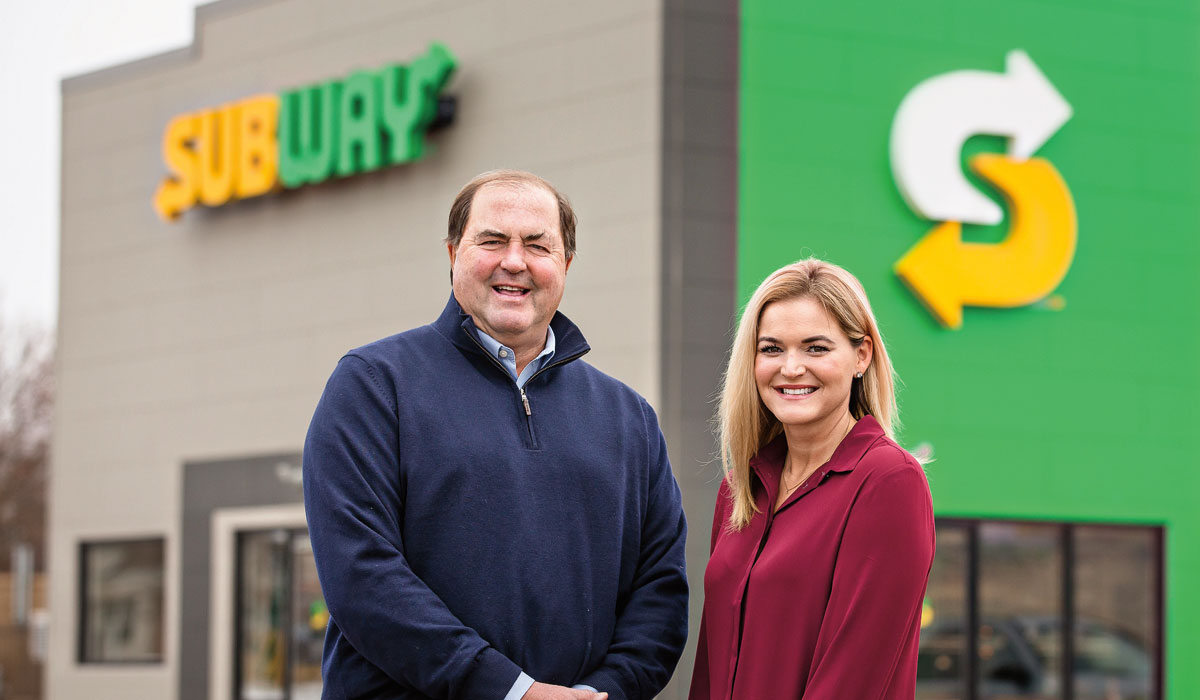Area developers. Business development agents. Master franchisors.
These are all positions that restaurants have used for years to drive their franchising programs. And while they all have a similar purpose, each company shapes the job responsibility a little differently.
As of February 2018, mega-chain Subway had at least 320 business development agents [bda]. “The BDAs are focused on providing support to the franchise owners to help them build profitable restaurant traffic and build brand awareness in their territories through restaurant development and market optimization,” says chief development officer Don Fertman. “In some emerging markets, there may only be a handful of restaurants, while in more developed markets we have BDAs with hundreds of locations.”
Many business development agents are themselves franchisees. Longtime Subway agent Marty Hogan and his daughter, Katie Hogan-Hardesty, own and operate 20 Subway stores, but they’re also responsible for managing 230 stores in central Illinois. It’s a varied job with a lot of moving parts—anything from implementing new ad campaigns and products, like Subway’s new Ultimate Cheesy Garlic Bread, to negotiating leases for stores to guiding remodels of existing stores.
“We wear a lot of hats,” Hogan says. “We have a staff of 11 business consultants. Those people are in the stores every month doing an evaluation. A big part of what we do is managing those people, making sure they do the best we can do for our franchisees.”
Hogan-Hardesty, who grew into her role after watching her father work with Subway for two-plus decades, says she’s really focused on making sure the franchisees in her market are as profitable as possible. In fact, their territory office holds frequent roundtable discussions with the purpose of improving sales. Hogan-Hardesty also strives to cultivate good relationships with those operators.
Fertman says that the vast majority of Subway’s business development agents have been recruited from the ranks of franchisee—that’s how the Hogans got their start. For Marty Hogan, it was in 1987.
“Who better to work with to build the business than someone who has walked in the franchise owner’s shoes and can understand their perspective?” Fertman says.
Smaller but growing brands also make good use of employees in these roles. Fast-casual rotisserie chicken concept Cowboy Chicken, based out of Dallas, has 26 stores with 10 leaders serving as multiunit developers. Cowboy Chicken president Sean Kennedy says the people in these roles perform a similar task to business development agents but with some key differences.
Specifically, multiunit developers will sign into a regular franchisee agreement with Cowboy Chicken, but they’ll also sign a separate, multiunit agreement in which they agree to develop a certain number of stores in a defined market area within a set time.
“Multiunit developers benefit by locking in a market area that generally provides them with the right to be exclusive franchisees,” Kennedy says. “So, they can reap the profit from all stores in an area and benefit from … the effects of increasing economies of scale.”
Typically, these multiunit developers are selected because they’re already experienced businesspeople in the region where Cowboy Chicken wishes to expand, Kennedy says, including people who may have already developed brands in the area.
Kennedy says it’s especially helpful in understanding a new market—especially with regard to real estate. If these developers already have the resources and infrastructure in place, it also makes hiring easier. As a result, these multiunit developers have helped Cowboy Chicken expand beyond its home base in Texas.
“We don’t have any desire to operate restaurants in California; it’s not our region,” Kennedy says. “But we do have strong interest in partnering with a qualified group that has the resources and financials based in California. They know that location, they know their market, they love the brand, and want to bring it to the West Coast.”
Speaking of the West Coast, mid-size California-based pizza brand Mountain Mike’s has also experienced a significant uptick in its unit count as of late. Brand leadership attributes at least part of that growth to its five area developers, whose responsibilities are similar to those of Subway’s business development agents.
Chris Britt, co-CEO and principal co-owner, says those five area developers help run the operations of 205 restaurants between them. As it grows, Mountain Mike’s is constantly seeking opportunities.
Jim Metevier, president and COO of Mountain Mike’s, says the company considers these employees to be brand builders. “We’re looking for people who are passionate about the brand first and foremost,” Metevier says. “We actually require our development agents to have at least one restaurant already. … They have to fully understand what it takes to run and be successful in the restaurant industry.”
Metevier adds that a passion for Mountain Mike’s food doesn’t hurt.
“For us, I got hooked on the brand as soon as I took a bite of this pizza,” he says.
Sonu Chandi, one of those area developers, is responsible for 13 Mountain Mike’s restaurants in California, nine of which he owns directly. (In addition to these franchised stores, Chandi also has his own hospitality group encompassing several full-service, original concepts.)
He says area developers like himself have a level of “entrepreneurial freedom,” which allows the brand to grow organically. Essentially, he’s the one who chooses the sites and partners to open up new Mountain Mike’s restaurants in the area.
“The [most] fun I have is when we identify a site, and it opens up successfully and ends up running successfully,” he says.

